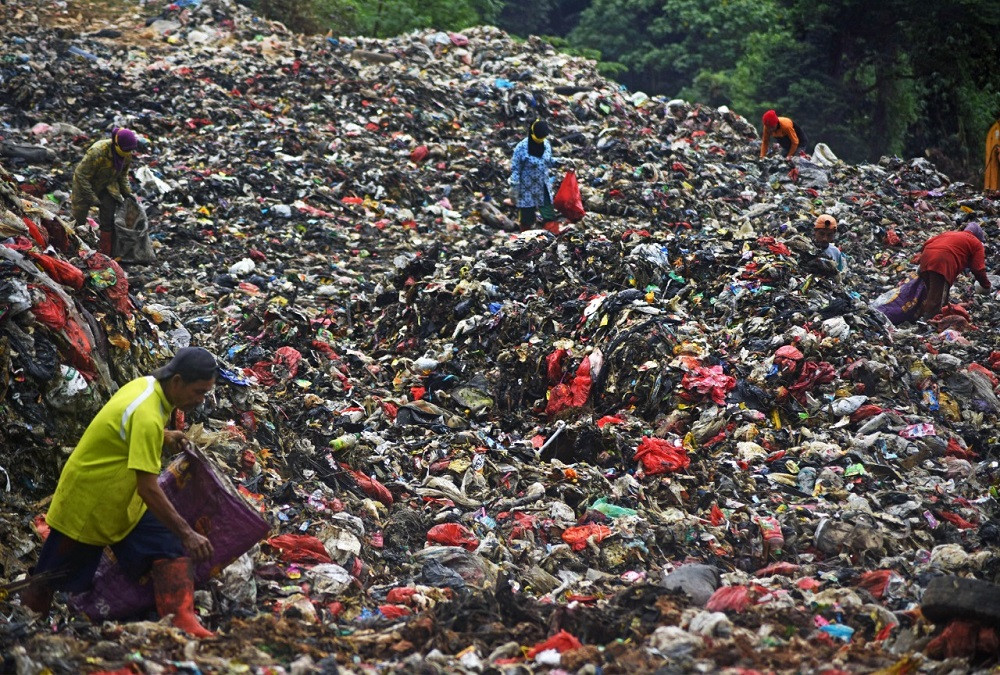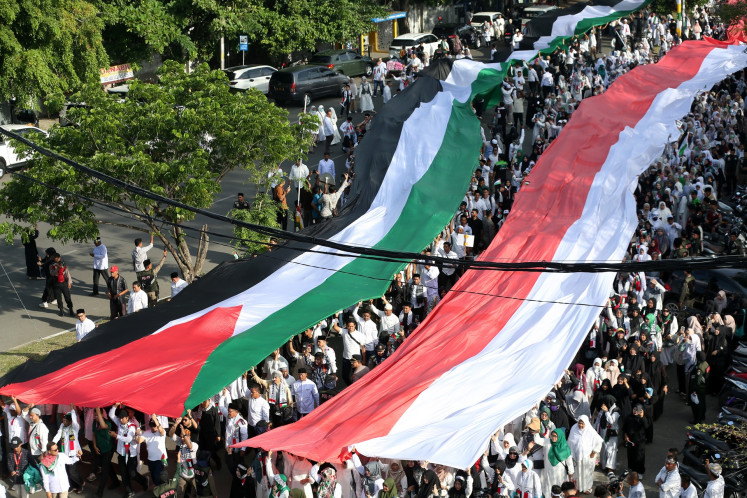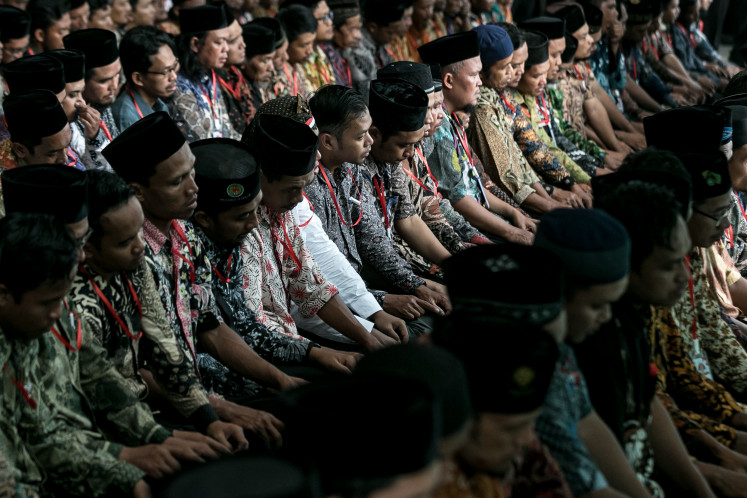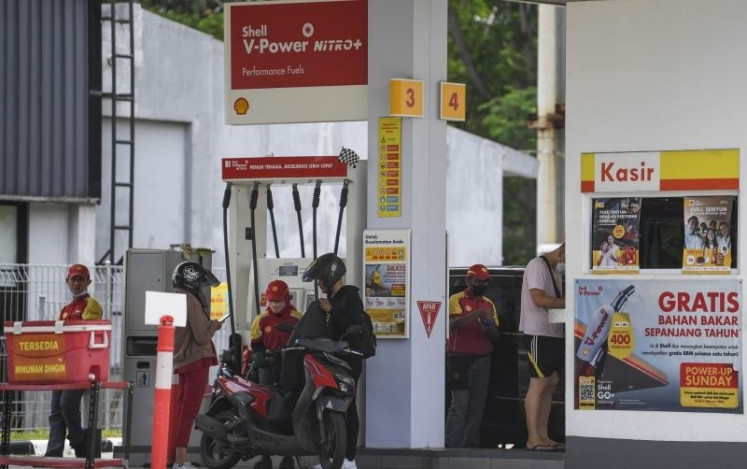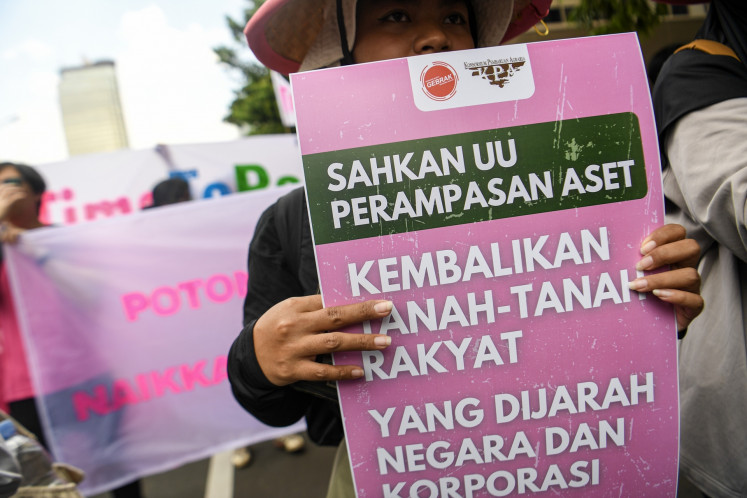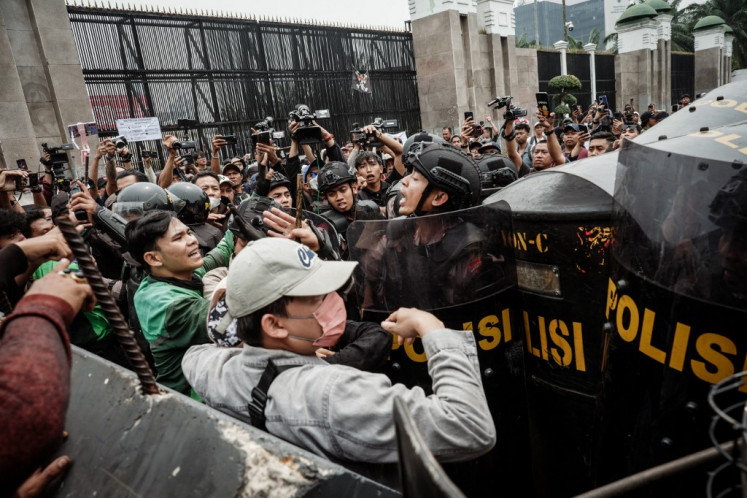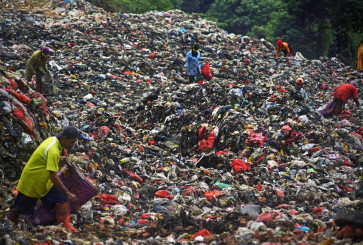Popular Reads
Top Results
Can't find what you're looking for?
View all search resultsPopular Reads
Top Results
Can't find what you're looking for?
View all search resultsInformal waste collectors, the unsung heroes of Indonesia’s waste management
Integrating informal waste collectors into the country's waste management industry will generate a host of societal, environmental and economic benefits, not least for waste pickers, who are generally left to fend for themselves without either social security or legal identification.
Change text size
Gift Premium Articles
to Anyone
I
nformal waste collectors bridge the gap between public waste management systems and the country’s recycling industry by taking on a crucial role in collecting, sorting and selling discarded materials for recycling. This not only reduces environmental pollution but also creates more opportunities for people to earn an income, especially the poor.
However, despite contributing more than 80 percent of input materials to the recycling industry and therefore acting as a driving force behind the circular economy, informal waste collectors are often marginalized in society, worsening their already vulnerable state.
Every year on Feb. 21, we commemorate National Waste Awareness Day (HPSN). Themed “Tuntas Kelola Sampah untuk Kesejahteraan Masyarakat” (Total waste management for community welfare), this year’s commemoration emphasizes the importance of a comprehensive waste management system in supporting public welfare. Without a comprehensive system, Indonesia risks exposure to massive pollution, diseases and infections from contaminated landfills, water and air.
Through proper waste management, however, we can expect significant increases in health and environmental quality that will improve people’s wellbeing and of course, lead us to a circular economy. Informal waste collectors play an important role in boosting recycling rates, reducing waste management costs, safeguarding landfills and creating jobs.
Informal waste collectors have been at the forefront of Indonesia’s waste management for decades. Yet they remain the most vulnerable and impoverished workers in the country’s waste management sector.
According to a study published by the Environment and Forestry Ministry in 2019, informal waste collectors contributed 84.3 percent of plastic waste and 80.3 percent of paper waste supplied to the recycling industry. Furthermore, analysis on the integration of the informal waste management sector in five cities and one regency has been conducted under the framework of the Emissions Reduction in Cities through Improved Waste Management (ERiC-DKTI), an Indonesian-German cooperation project managed in partnership with the National Development Planning Ministry/National Development Planning Agency (Bappenas).
The results showed that informal waste collectors recovered 86 percent of the total waste produced in these cities, with an estimated average recycling rate of 21.66 percent of all recyclable waste, such as plastic, paper and glass.

